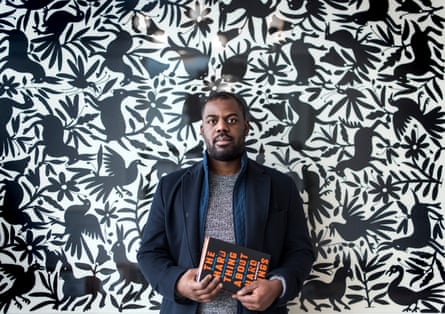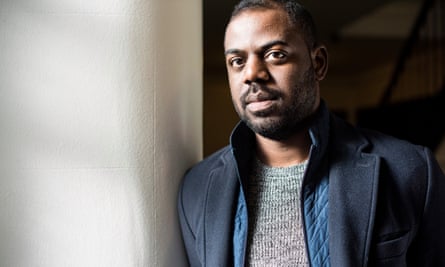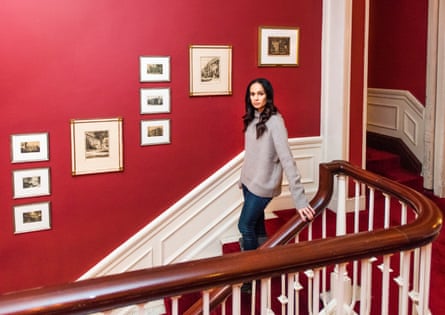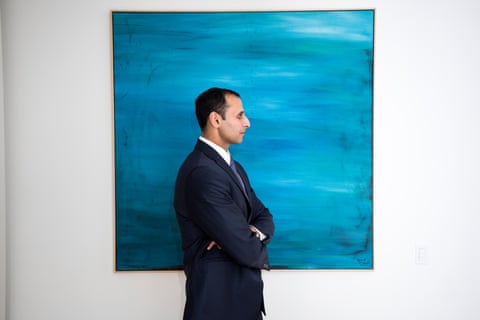On an October night in 2003, a flat tire changed Muhammad Faridi’s life forever.
Faridi was 20. An immigrant who’d moved from a small village in Pakistan to Brighton Beach, Brooklyn when he was 12, he split his time studying at City University of New York during the day, and driving his dad’s cab at night to make money.
One of his professors had organized a human rights conference in New Jersey and, knowing about Faridi’s side job, asked him to drive the woman delivering the keynote lecture to the conference and back. And that’s what Faridi was doing until he got a flat and had to pull over in the dark on the side of Route 80. As it turned out, Faridi’s passenger was Mary Robinson: the first female president of Ireland and the United Nations high commissioner for human rights from 1997 to 2002.
It took Faridi a while to change the tire – everything seemed to be going wrong that night – and as he was struggling with the car jack, the two got talking.
It was coming up to the second anniversary of 9/11 and Faridi told Robinson that, as a Muslim, he was no longer sure what his place was in America. A lot of his Pakistani friends had been rounded up in immigration raids and had been deported. “You’ve got to become a lawyer,” Robinson told Faridi firmly. That would be the best way to help his community. Her words stuck with him.
Fast forward 14 years, and Faridi is a partner at a prestigious New York law firm. As a kid, Faridi’s loftiest goal was maybe one day being a limo driver, doing just a little better than his father. He never thought he’d be where he is today: conducting billion-dollar lawsuits and leading pro bono cases, representing Muslim community centers and death row inmates.

I’m talking to Faridi in his plush office on the 30th floor of a fancy Manhattan skyscraper. Our conversation is part of a number of interviews I’m conducting with people who have dramatically changed their social class. I want to find out what it’s like to be a class “migrant”. What you learn when you journey from one socioeconomic group to another, and whether it takes an emotional toll.
Stories like Faridi’s are becoming increasingly rare. Economic mobility has fallen steeply in America over the last few decades; one study estimates it has almost halved since 1940. Increasingly, your class is your destiny. Nevertheless, the country remains enamored of these rags-to-riches tales which perpetuate the myth that, in the US, anything is possible if you pull yourself up by your bootstraps.
It’s not just hard work that propels you up the social ladder. Success, as Faridi stresses repeatedly, is often large parts luck. But there’s also another, less tangible ingredient involved: “class-passing”.
In the UK, class consciousness is woven into the national identity. In America, however, people often like to pretend that a class system doesn’t really exist. But, of course, it does.
Going from a taxi driver’s son to a partner at a law firm isn’t just about academic qualifications. It’s also a matter of figuring out the right social cues. You have to understand the subtle signifiers that indicate to people that you’re one of them – whether that be the way you hold your fork, where you go on holiday or what brand of shoes you wear.
As a young lawyer, Faridi spent large amounts of time trying to figure out how to crack the unspoken conventions of his new world. How to dress, for example. “I remember wearing a lot of cufflinks, because that was the thing to do,” he says.
Fancy lunches with clients also became a minefield. “I was very nervous about how to pick up the cutlery so I watched a bunch of YouTube videos on proper ways to handle silverwear,” he says. Faridi grew up in a Muslim household, where you get taught to eat with your right hand. According to YouTube, Faridi chuckles, “the proper way of putting food in your mouth is by using your left hand. And I remember having a lot of discomfort with that because it was something I’d never done before.”
In law school, Faridi clerked for a judge. One night, he helped the judge load some heavy documents into a taxi; the driver was his father. Faridi froze, not sure what to do. “I was embarrassed to go over and shake [my father’s] hand, so I waited until the judge had already gotten in the cab. I didn’t want the judge to see me, and I didn’t want my father to think that I was embarrassed to see him.”
It wasn’t until he made partner in 2016 that Faridi lost his sense of embarrassment. After the big announcement, he remembers, he took the elevator down to the bottom of the building, where his dad was waiting in his taxi. “And he came out of the cab and we hugged each other for a good couple of minutes.”
But there’s still a gulf between his new life and his old. His best friends from high school work as cab drivers and busboys or in Pathmark, a major supermarket chain, and he doesn’t get invited to poker nights at their houses. “None of them came to my wedding,” Faridi says sadly.
While he’s proud of everything he’s achieved, there is part of him that mourns the person he used to be.
The clean-energy CEO meeting Silicon Valley elites

Donnel Baird spent part of his childhood in Brooklyn. In the years since, the borough has rapidly gentrified, and so has Baird. We’re chatting in a WeWork co-working office in the pricey Dumbo neighbourhood, where Baird is the CEO and founder of BlocPower, a clean-energy startup that has raised over $1m in funding from some of Silicon Valley’s biggest names – including Andreessen Horowitz, which has invested in the likes of Twitter and Airbnb.
BlocPower had $4m in revenue in 2017 and has a contract to perform sustainability retrofits of 500 buildings in Brooklyn. It likely won’t be long before the company outgrows its current office space.
There weren’t any trendy office spaces in Baird’s Bed-Stuy neighbourhood when he was a kid. Co-living, on the other hand, was common. He lived with his parents and sister in a in a one-bedroom apartment; two aunts and five of his cousins lived in a studio upstairs. They shared a bathroom in the hall with another family.
Bed-Stuy in the 1980s was rough. Baird saw a teenager shoot another kid in the head when he was just six. It was all a far cry from the Baird family’s life in Guyana. Baird’s dad had had an important job and a big house, but in America they had to start from scratch. It took a toll on the marriage and, when Baird was eight, his parents split up and his mom moved with him down to Atlanta.
In Atlanta, Baird managed to get a place at one of the better public schools, the one where rich white kids went. At first they told his mom there was no room; there literally wasn’t a spare desk. “So she got on the bus to Home Depot and bought a desk,” Baird remembers. “She dragged it back to the school and said, ‘You can just stick the desk in a corner of one of a classroom and my son will sit there. He’s extremely well behaved.’ And they said ‘OK’.”

As a senior, Baird got offered a full scholarship by Howard, a historically black university. It was a great deal. But he’d also been accepted to Duke, a prestigious, largely white school. The financial aid package they offered was nowhere near as generous. Still, he ended up picking Duke, his mind swayed by a conversation with the father of one of his white friends.
“Her dad was a lawyer and he told me, you know, I’m 55 years old and I come to an event like this with all these other rich, white guys, and they still ask me where I went to undergrad. I live next door to them. I have as much money as them. And they still ask me because it still matters to them.” Because he didn’t go to a prestigious school, the man told Baird, he’s always treated as somewhat inferior, no matter how much money makes.
“Now, you’re black,” his friend’s dad said. “If you go to Howard you will never have a shot at getting the inside track. You have to go to Duke.”
Having learned how to navigate the old-money world of Duke, Baird now finds himself struggling to adapt to the culture of new-money Silicon Valley as he attempts to fundraise.
Rather than bonding over golf, the tech set play Settlers of Catan. They wear hoodies rather than suits. They have their own set of conventions and Baird has to code-switch accordingly. In his meetings with New York banks, for example, Baird dresses formally. “But if you go to Silicon Valley dressed like that,” he explains, “they’ll be like, this guy is a suit, he doesn’t dress like a tech person. That matters. The meeting is over.”
He has even, he tells me with more than a tinge of embarrassment, bought a pair of Allbird loafers – which are de rigeur in the Valley.
Class and colour are, of course, inextricably intertwined, and moving to a higher social class in America often seems to involve “acting white”. Throughout his life, Baird has been accused of betraying his race.
“Early on, people say that I talked white, even in my own family, which was painful. I don’t think that they would say it to hurt my feelings, they were just stating it as a fact. There’s a mix across my family of people who are very proud of me, and people are kind of resentful.”
“I have family members that are living here illegally, who can’t find work, who are addicted to crack cocaine. I’m still very much connected to them, but we live in very different worlds.”
The real estate queen who went from South Bronx to Southampton

Someone who knows more than most about moving between different worlds is Mary Ann Tighe, routinely ranked as one of the most powerful women in New York.
The 69-year-old CEO of the New York Tri-State Region of CBRE, the world’s largest commercial real estate services firm, may be a property legend, but she got into the industry fairly late, at age 36. Before that she worked as an arts adviser in the White House and helping to launch the TV channel A&E.
Tighe grew up in a working-class Italian American family in the South Bronx. She’d always hoped to live in Manhattan one day, so she could visit the Metropolitan Museum of Art, but never thought she’d end up owning an apartment opposite the Met and be brokering billion-dollar deals. Her ambitions stretched nowhere near that high, nor were they encouraged to.
One of the biggest revelations of her life, she tells me, is that many of the people around her “had lowered their own personal expectations because life had been hard. They didn’t expect to be special”.
It’s a common phenomenon: research by the Joseph Rowntree Foundation in 2015, for example, found that those experiencing poverty are significantly less confident in their own ability to succeed, which becomes a self-fulfilling prophecy.
For a short time, Tighe internalised this attitude. She was 13 and had just moved from a free elementary school into a fee-paying high school; her parents were working all hours to afford it and Tighe was acutely conscious of this.

Her new high school had a policy whereby the five top-performing kids in the grade got free tuition. Tighe wondered if she might be able to get in the top five and mentioned it to her family and a teacher. All of them had the same reaction: “You were the smartest person in the class in elementary school but you’re in a much bigger pond now, so you’re not going to be the smartest any more.”
Tighe says she took that to heart and didn’t bother trying hard in class. But even without trying, Tighe came number six in her first semester. “I had a kind of breakdown,” Tighe says. “I wept and wept.”
She was so angry with herself, she says, for believing that she couldn’t be the best and for not working to relieve the financial burden on her parents. “Suffice to say I was never again not number one in that school,” she says. “It was at that moment that I realized that other people’s worldviews were not the same as mine. I couldn’t listen to them tell me that I couldn’t do something.”
One of the most valuable (and least studied) aspects of growing up with economic privilege, I’ve observed, is the sense of entitlement and the confidence it gives you. “Almost unreasonable confidence,” Tighe notes. “The confidence that comes from the achievement of others. Your parents are successful and you think that’s you.”
Today, Tighe is involved with her old high school in the Bronx and also works with the Inner City scholarship fund which gives free tuition to children. She has been funding scholarships since 1982, and she stays in touch with the recipients.
“Every one of these kids tells me the same thing,” she says. “Getting that scholarship made me realize I was special and changed everything. That vote of confidence in someone is transformational.”
From prep school to the managing director of an ad agency

When Nancy Reyes was 11 she was selected for a diversity initiative called Prep for Prep. The program identifies promising students of colour in New York and sends them to private schools.
Reyes was living in Queens at the time. Her dad was a taxi driver and her mom was a cleaner. She says: it was “a very paycheck-to-paycheck kind of life.” She went to the program after school to get caught up on things that private school kids learned, like Latin. Then, at age 13, she got a place at Trinity, one of the most prestigious schools in the US.
Reyes credits Prep for Prep for where she is today: the managing director of New York ad agency TBWA/Chiat/Day, and one of the most respected women in advertising.
But being plucked from working-class Queens and inserted into a school filled with Manhattan aristocracy was tough. “If you’re going to do these programs where you insert people of color into private schools, then they also need some therapy,” Reyes tells me. “I certainly did.”
Her accent, for example, immediately marked her out as different. “I wanted so badly not to have an accent; to speak ‘properly.’” Kids would say “do the Rosie Perez,” to her a lot, Reyes remembers.
In private, she was training herself to speak differently. “Not to say cawfee, for example, and not to do any of the things that I think were perceived as being people-of color-things. Like rolling your eyes or doing those kind of side-to-side head movements. I always thought, that’s not me, I’m not that person. I belong here, I’m gonna behave like everybody else behaves.”
The fact that her parents would never be like the other kids’ parents, however, was sometimes frustrating. “I remember having a moment where I yelled at my mom because she wouldn’t learn English. I remember saying, ‘This is America, you have to speak English!’ I was so brutal to her.”
So desperate was Reyes to fit that, on occasion, she – literally – almost died of embarrassment. Trinity students all knew how to swim well; the school had a big pool and everyone had summer houses with pools. She didn’t. One year, she was invited to a pool party. “Everybody was pushing everybody into the pool, messing around. I got pushed into the pool and I was treading water, because I didn’t know how to swim. I was too embarrassed to tell anyone or ask for help, even though I might have drowned.”
When time came to apply for college, Reyes ended up getting accepted to all the Ivy League colleges she’d applied to. She came home one day and the acceptance letters were there waiting for her. That was the moment, Reyes says, when she thought for the first time, “Oh my God, I think I belong. I remember sitting on the stoop and opening them and thinking, I earned it.”
At Harvard, Reyes was selected (“punched,” they call it in Harvardese) for the prestigious Hasty Pudding Club. She was excited about it until she started filling out the application, which asked about her parents’ occupation.
“I remember thinking, ‘Why do you need to know their occupation?’ As soon as I put that down, you’re gonna be like, ‘No way a taxi driver’s kid can come here.’” Reyes shrugged. “So, I was like, fuck it, and I didn’t do it. I didn’t have to be reminded that I was poor, while everybody else was rich.”
After years of trying to fit in with her over-privileged peers, Reyes realized that perhaps she didn’t want to be so much like them after all.
